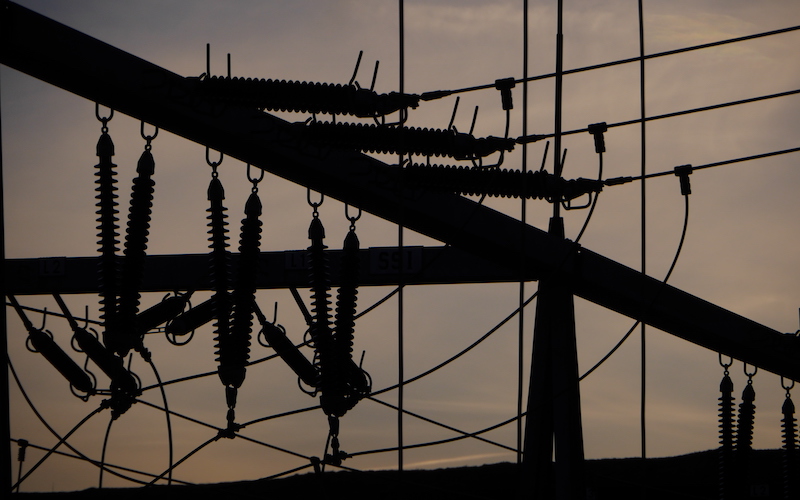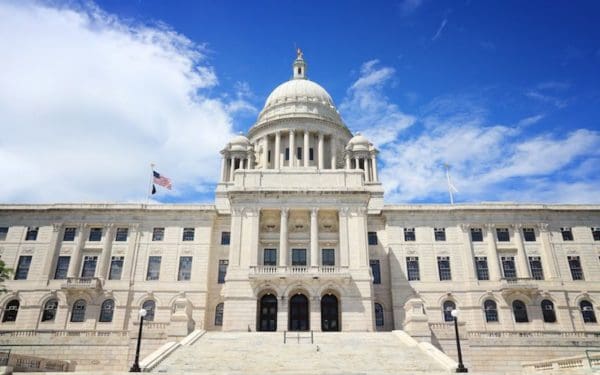
ISO-New England's insistence on using fossil fuels hurts our health, wallets, and the climate. Photo: Shutterstock.
New Englanders have made their opinion clear: We want clean energy.
So why does our regional grid operator, ISO-New England, continue to push fossil fuels and hinder progress on renewable energy sources – to the point that today we face soaring prices and reliability concerns due to the region’s overreliance on gas?
Every winter since at least 2005, ISO has made a misguided appeal for more gas. Without more of the climate-damaging fossil fuel, it warns year after year, New Englanders will face rolling blackouts and freeze in the dark. Except, that has never happened.
Could it happen? Maybe – if a lot of things went wrong all at once. But the fact is that solutions already exist to prevent that risk. Instead of supporting those solutions – which would also loosen the fossil fuel industry’s grip on our electric system and wallets – ISO has cried wolf for almost two decades
CLF recently took ISO to task in the Providence Journal for its failures to support meaningful solutions that address the risks posed by our overreliance on gas. ISO’s Vice President of Public Relations, Anne George, responded. Let’s break down her attempt to misdirect us towards continuing our dependence on fossil fuels.
ISO Refuses to Own the Problem
ISO’s Claim: “Even after the ISO has corrected their misstatements, CLF feels compelled to further its baseless claim that because the region has not seen widespread controlled power outages, they won’t happen.”
Fact: We do not claim that rolling blackouts will never happen. We do point out that they have not happened to date, despite nearly two decades of annual threats from ISO. And we certainly want our grid operator to bring attention to real concerns about energy supply that may affect New Englanders.
However, the fact is that ISO knew in 2005 that the region’s heavy dependence on gas could be a problem – yet it has done nothing to curb that dependence. Instead, it pushed for more gas and more pipelines, even as recently as this past August. At the same time, it continues to put up obstacles that make it difficult for clean energy suppliers to enter and compete in the region’s energy markets. So, ISO has far from corrected its misstatements and failed to solve the problem of our dependence on gas.
Fear Mongering for More Natural Gas
ISO’s Claim: “We have explained there are insufficient natural gas pipelines in the region to support both electricity and home heating in these times.”
Fact: Ms. George is singing a familiar refrain from ISO’s songbook: We don’t have enough gas supply to both heat and power our homes and businesses during severe cold snaps.
For years, ISO has prevented clean energy resources from competing fairly in energy markets which has made the region overly reliant on gas. ISO would like us to think that more gas pipelines will solve our energy problems – but ignores the fact that an even greater reliance on gas will make it harder and more expensive for the region to meet its aggressive climate laws.
Not to mention, ISO’s job is to prepare for such weather extremes well in advance. It makes plans to have a surplus of energy to get us through our coldest days. We might never use this surplus energy, but if we need it, ISO has ensured we have it. In fact, last winter, ISO-New England contracted for approximately 30% more power than its system has ever needed during winter.
Ultimately, if we do have an energy problem this winter, it would be of ISO’s own making for failing to fix the problem it has warned about for nearly two decades.
The Importance of Locally Sourced Energy
ISO’s Claim: “The war in Ukraine has created even more competition for these fuels and raised concerns that there will not be sufficient supplies in New England to meet demand during extended cold spells.”
Fact: Russia’s war in Ukraine has contributed significantly to the rise in natural gas prices and constrained supply – especially since New England continues to depend on imported liquified natural gas as part of its fuel mix. However, this isn’t a reason to build more natural gas pipelines and pump more polluting fuels into our homes and businesses. This is actually why building clean energy is so important.
New England can develop local, clean energy like offshore wind and solar power across all six states. That will help us slash climate-damaging pollution with safer, healthier energy sources. These developments will also provide a more reliable and more affordable source of energy without being so heavily influenced by international crises.
The war in Ukraine is a lesson about the dangers of ISO’s history of perpetuating our dependence on imported fossil fuels.
We Call it A Clean Energy “Transition” for A Reason
ISO’s Claim: “CLF… continues to promote without evidence that there will be clean energy resources available quickly enough and in sufficient quantities to solve the immediate challenges we face.”
Fact: We understand that moving off fossil fuels is a transition. But we also need all hands on deck to build clean energy resources now. That means our state governments making it easier and more affordable for their constituents to access clean energy solutions. It means ISO undoing antiquated energy market rules that prevent clean energy from competing fairly. And it means utility companies helping ready the grid for more electricity demand that comes from electrification. All of this takes time.
However, it would be remiss of us to ignore the fact that ISO has been constraining our opportunity to prepare for the crises it warns of by hampering New England’s adoption of clean energy. Almost two decades of being aware of a problem is sufficient time to fix it.
It’s Time for ISO to Step Up on Climate Change
Ms. George ends her piece by saying:
“To fight climate change, New England needs a steady hand focused on a reliable clean energy transition.”
We agree. But ISO has not demonstrated its capability to play this role. We want our regional grid operator to be an ally in our collective climate fight, supporting our states’ climate laws to slash climate-damaging pollution and reach net zero emissions by 2050.
We push so hard because climate change isn’t just about wonky laws and policies or behind-the-scenes energy markets. Climate change is a matter of our lives. Every New Englander deserves a livable future, free from expensive, explosive fuels and their public health consequences.
We need ISO-New England to step up and do its job. We need them to fix the problems it has been warning us of by actually supporting our clean energy transition.



